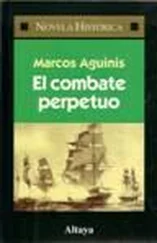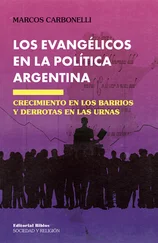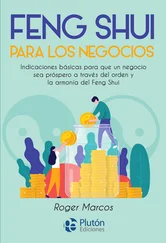Marcos Giralt Torrente - Paris
Здесь есть возможность читать онлайн «Marcos Giralt Torrente - Paris» весь текст электронной книги совершенно бесплатно (целиком полную версию без сокращений). В некоторых случаях можно слушать аудио, скачать через торрент в формате fb2 и присутствует краткое содержание. Год выпуска: 2014, ISBN: 2014, Издательство: Hispabooks, Жанр: Современная проза, на английском языке. Описание произведения, (предисловие) а так же отзывы посетителей доступны на портале библиотеки ЛибКат.
- Название:Paris
- Автор:
- Издательство:Hispabooks
- Жанр:
- Год:2014
- ISBN:9788494228452
- Рейтинг книги:5 / 5. Голосов: 1
-
Избранное:Добавить в избранное
- Отзывы:
-
Ваша оценка:
- 100
- 1
- 2
- 3
- 4
- 5
Paris: краткое содержание, описание и аннотация
Предлагаем к чтению аннотацию, описание, краткое содержание или предисловие (зависит от того, что написал сам автор книги «Paris»). Если вы не нашли необходимую информацию о книге — напишите в комментариях, мы постараемся отыскать её.
Paris — читать онлайн бесплатно полную книгу (весь текст) целиком
Ниже представлен текст книги, разбитый по страницам. Система сохранения места последней прочитанной страницы, позволяет с удобством читать онлайн бесплатно книгу «Paris», без необходимости каждый раз заново искать на чём Вы остановились. Поставьте закладку, и сможете в любой момент перейти на страницу, на которой закончили чтение.
Интервал:
Закладка:
When, with the definitive disappearance of my father, my mother announced that she was moving to Paris, she did not, of course, tell me she was doing so as a result of her latest failure, but given the level of my confidence in her, that is how I interpreted it. I sensed somehow that a change was needed, and moving to another country seemed the best way of bringing about that change. She was seeking refuge in another city, leaving me with her sister. I was quite sure about this and didn’t feel she was abandoning me, and I believed her when she said this was a purely temporary measure while she adapted to her new life, found a place to live and a school for me. When I think about it now, now that time has passed and the reasons for her leaving are less clear, it no longer matters whether she undertook that journey for her sake or for mine, whether she made the decision to put a stop to the uncertainty as represented by her husband either then or later — the fact is she left. Whether or not that step was a sad one, or whether or not she first had to suffer bitterly, would make no difference to the end result.
What was their relationship like exactly? What was it that attracted them to each other? What were they hoping for? Did they waste time arguing or did they just accept their differences as given? Were their reunions passionate affairs or did they get back together with a sense of ill-digested disappointment?
As with everything one has not experienced directly, for me, the beginning of their relationship, albeit devoid of all symbolism, belongs to a territory that is more mythical than real. According to the idealized version my mother gave me in my childhood — which was the one destined to last and which, even now, I have no reason to doubt, because she never amended it — they met in the late 1950s in a Madrid that I imagine to have been like the dusty skin of the elephant in the old Natural History Museum but that, when my mother spoke of it, was lit by the blue of a nostalgia that consisted in equal measures of partying into the small hours and a sense of life lived at a slower pace, which had to do perhaps with the general tone of the period and, in equal measure, a complete and proper youthful disregard for time. My mother said that my father was fun to be with and that although some of the characteristics that would later mark his life were already there, they were so subtle that they were not so very different from the habits of other friends of hers who went on to lead a perfectly normal existence. She was always quick to emphasize that he was the youngest and most attractive of a family of four brothers, all of whom, apart from him, were happy to follow the family tradition of making a career in the judiciary. And it isn’t hard to imagine that it was precisely this mixture of scoundrel and gifted young man that proved so seductive to someone of my mother’s age at the time. His desire to reject the fate decreed by his family found some justification in certain intellectual ambitions; he had travelled, he played tennis, and was as at ease in the wealthiest of Madrid’s social circles as he was in other very different circles where fights frequently broke out and feelings of resentment were always quick to surface.
My mother said of herself that she came from a similar family background of high-ranking civil servants, in her case diplomats, but what expressed itself in my father as rebelliousness and a genuine desire to break the mold being imposed on him, in my mother’s case may well have been mixed up with her feelings of abandonment. She had no mother, and her father had remarried, his second wife being an Englishwoman fiercely jealous of everything in her husband’s life that predated her, and my mother’s one bulwark was a sister three years older than her, to whom she had always been very close but whom she rarely saw. My mother was studying French at college and her life was lived between two poles: on the one hand, the freedom allowed her by the relative neglect of a father who tended to give precedence to the often arbitrary demands of his new wife and, on the other, certain social impositions that, because she associated them with the figure of her father, she flatly rejected, while never daring to openly call them into question.
That is the starting point, according to what my mother told me when I was growing up. Oddly enough, she never went into any detail about how they came to marry, not that I can remember, at least. What I do know is that the early days of their marriage were calmer and less troubled than one might expect. After I was born, she took a job as a high school teacher, and my father, who dropped out of college, got the family involved in a business importing sportswear, something, he said, that would provide him with a basis so that, later on, he could devote himself to what he really wanted to do. It seems that, even then, he loved the high life, and any little luxury acquired licitly was as insignificant to him as the unworthy, exhausting work he had done in order to pay for it, although whether other people had any sense that this might become a problem, I don’t know. I can’t recall her mentioning any great financial disaster or when precisely it all began to go wrong. The sportswear business failed, as would all the various other businesses he set up subsequently, and my father was reduced to freelancing as a translator and proofreader, but the mere fact that this was a chain of events rather than a single, isolated incident means that it’s impossible to speak of one particular determining factor that prompted his drift over to the dark side. Rather, it was a slow process in which the withdrawal of his family’s trust in him played a large part. Even so, the first signs of conflict must have already appeared, because the range of his business experiments began to expand into other areas outside Madrid, as if he felt an increasing need to put some distance between them and his family, my mother and myself included.
The knowledge transmitted to me about the years that came afterward is not very much clearer. Apart from what my mother told me when she thought she could allow herself to and what I myself observed in the brief time during which I lived with him, I learned nothing, or very little, of what happened at home. I know that he lived with us until I was six or seven, but I’m not even very sure of that. The mechanisms of memory work in strange ways, and all I can remember from that period are a few completely irrelevant anecdotes in which he plays a more or less central role. I remember an afternoon at the movie theater, a day when he came to pick me up from school, and a few summer mornings when he tried to teach me how to ride a bike — but these memories are all in black and white, there’s no intensity, no awareness that those incidents were in any way exceptional. From 1968 on, and for six or seven years afterward, when the real change occurs, the bonds between us are not broken exactly, rather they become more loosely interwoven. In theory, he continues to live with us, but there are also long periods when he disappears and we have no news of him for months at a time. The most significant thing about this situation is that it doesn’t appear to affect my mother. There are no arguments, no complaints. She has obviously begun to realize that he frequently lies, and she sees, with some concern, that his life is gradually dissolving into one of constant flight, but she nevertheless still greets every return home with joy and barely turns a hair whenever, quite unforeseeably, he disappears again. In a way, it’s as if the role she reserved for him were not so much that of occupying a physical space at home as merely continuing to be a possible reference point, as if his role in our lives consisted of his willingness to take on that role, rather than him actually fulfilling it. She’s quite sure he’s not going to replace us with someone else, and yet is afraid that putting pressure on him might make him leave for good; I suppose she has her reasons for wanting the relationship to carry on with a certain appearance of normality and that, deep down, none of his absences matter to her as long as they do not become definitive. Meanwhile, without my noticing, my father’s life has begun to grow chaotic, he has lost friends and set off along a path on which there is no room for anything that might tie him permanently to one place or one project. He frequently changes job, spends money like water if he has it — and very often he doesn’t — but he still continues to do nothing definite with his life. The adventures we know about are limited to the theft of some silverware from his parents’ house, the continual fabrication of catastrophes and excuses in order to borrow money and not give it back, and generally presenting the world with a façade that looks far more respectable than it really is. He’s already becoming a trickster, and as his life proceeds, he’s caught up in that spiral in which every deception serves only to cover up the previous one, but his misdeeds are still amateurish affairs. They can still not be considered crimes, because there is still far too narrow a margin between the thefts he plans and the unjustifiably trusting nature of the parties being swindled. We have to wait until 1972, when I’m nine years old, for everything to fall apart.
Читать дальшеИнтервал:
Закладка:
Похожие книги на «Paris»
Представляем Вашему вниманию похожие книги на «Paris» списком для выбора. Мы отобрали схожую по названию и смыслу литературу в надежде предоставить читателям больше вариантов отыскать новые, интересные, ещё непрочитанные произведения.
Обсуждение, отзывы о книге «Paris» и просто собственные мнения читателей. Оставьте ваши комментарии, напишите, что Вы думаете о произведении, его смысле или главных героях. Укажите что конкретно понравилось, а что нет, и почему Вы так считаете.












